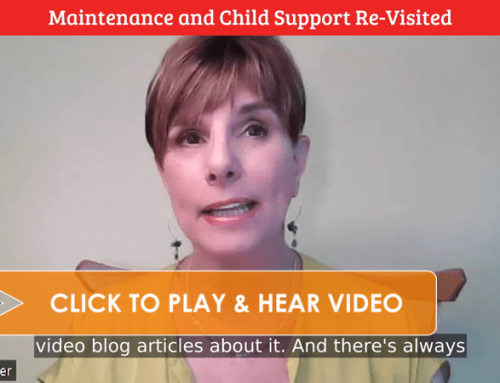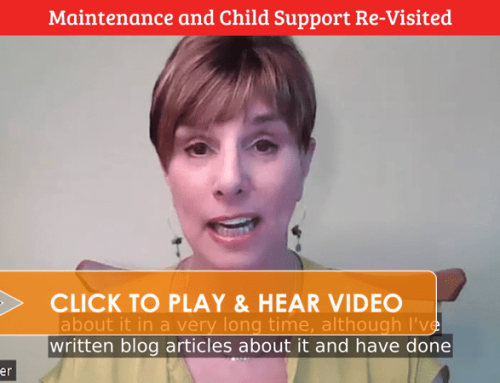 {4:12 minutes to read} When I was growing up, every Jewish mother I knew encouraged – nay, insisted – that their married daughters all have a pishke (also known as a knippl or a kupke).
{4:12 minutes to read} When I was growing up, every Jewish mother I knew encouraged – nay, insisted – that their married daughters all have a pishke (also known as a knippl or a kupke).
For the uninitiated, a pishke (pronounced pish-kah or sometimes affectionately called a pish-key) is a private stash of cash saved up out of the household money a husband gave his wife. It’s a nest egg if you will – but the primary idea behind it is that it’s a secret cache. And it’s used for all those little things she wishes to purchase without having to ask permission or explain herself.
This idea was probably borne out of the days when wives were homemakers – staying home, cooking, cleaning and raising the children while the husbands went to “work” and made the money. In that scenario, women didn’t have money of their own, so if they wanted something beyond their weekly “allowance” to run the household, they had to ask their husbands for it. And in so doing, they risked having to explain the special request and risked being told “No.”
Can you even imagine such a thing these days, especially since most households have two working spouses? But it wasn’t that long ago that this was the way it was.
For some reason, this topic of a pishke came up among my friends. Pretty much every one of us had one even though most of us work. I guess old habits die hard. We had a good laugh about this and shared stories of how much we had, where we hid it, who knew where it was…. just in case!
I recalled one of my first mediation clients where the couple had agreed that the wife would give up her job while the children were little. Here they were, in my office about 5 years later, and they were working out the impending separation with all the requisite financial outcomes. The husband had been keeping the books for the family and the wife had little interest or knowledge in the goings on. All she knew was that there was enough money to live the lifestyle they had, and that’s where her curiosity ended.
It became clear to me that she would benefit by seeing a financial advisor to help her understand the issues while going through the divorce as well as give her guidance about how to manage her finances once she was on the other side of the settlement.
I referred her to an elderly, grandmotherly type financial advisor who had many years of experience – I’ll call her Martha. It was later revealed to me by the wife that Martha told my client that she should start squirreling away money into a pishke while they were mediating, to ensure she had some money of her own.
Uh – wrong answer! She must have thought my client was litigating not mediating.
In mediation, all monies are discussed and fully disclosed for transparency and fairness to both parties. You may certainly have a pishke, the knippl, the kupke, the cash in the shoe box in the back of the closet . . . but in mediation, those caches will need to come out of their hiding places and be put on the table.
And, no, I’m not telling you where my pishke is!
Comments from Social Media
Posher is also negotiable–enjoyed this article. Thanks for sharing.
Renu Khosla
________________________________________________
Maybe that’s the key to success! Shoebox in the wardrobe, eh? Somewhere else to look!
Geoffrey Beresford Hartwell
________________________________________________
Enjoyed the article. It does seem a little unfair . . . sort of like when court systems were able to save money from their budgets by various economies and sacrifice only to have the State Governor sweep these savings back to the State’s General Fund while other court systems spent their last dollar and then some. Here, the spouse probably stashed his/her savings into the pishke by using coupons, cleverness, and good fortune (the inheritance was sometimes put there also!) only to have the other spouse to have a second shot at the partner’s thrift. Yes, you are right, all assets need to be disclosed, but sometimes “no fault divorce” goes too far! Thanks for the reminder of simpler time
Richard Flier
________________________________________________
Ada, great post. And I am going to defer to your experience in your family area of mediation. I specialize in workplace issues. And I, like you, encourage that all the facts be placed in view. But I have to say, giving up one’s pishke doesn’t feel right somehow. I couldn’t tell you why I react that way. Perhaps it is because those that are not involved in the family finances seem at such a disadvantage.
Thornton M. Mason
- Is the Child Support Statute in New York State Still Relevant Today? (video) - April 2, 2024
- Managing Expectations Post-Separation or Divorce (video) - March 6, 2024
- Maintenance and Child Support Re-Visited (video) - February 21, 2024






Ada, that was a wonderful story to share. I grew up with my dad being a small town lawyer (as was his dad) and my mom a brilliant woman who was born 30 years too soon (she would be running a major non-profit likely today!) who as was common, a stay at home mom. She ran the finances of the house, putting cash into about 20 different envelopes in a kitchen drawer. There were envelopes for the mortgage, property taxes, utilities, food, going out, vacation, charity, and so on. (Today we do the same thing, but all electronically.) It was my mom who had my brother and I keep track of all of our own expenses while we were in high school (as her father had done for her), and opened checking accounts for us in high school and taught us to manage our own money.
When I got married, my wife (although my name is Sandy, I am male) and I merged our finances (in reality she had no assets and just student loan debts, while I had substantial assets from investing starting at age 13) and we each had our own allowance on a monthly basis to do with whatever we wished. We also had equal access to all of our bank accounts and investments. But it was each of us having control over our own allowance account that gave us each independence.
Although helping divorcing couples negotiate financial settlements is the majority of my business today, I try to help them provide financial life skills for their children. Having a pishke (or its equivalent) is a wonderful thing for each of us. Hopefully it won’t ever be needed for divorce, but if that is what is needed, it is essential for both of the couple to have put aside enough assets to not be forced to wreak havoc on their financial future by needing to draw down on their retirement funds or sell assets at an inopportune time.
Many thanks for starting the discussion. Brought back some wonderful memories…
“In mediation, all monies are discussed and fully disclosed for transparency and fairness . . . those caches will need to come out of their hiding places and be put on the table.”
If only.